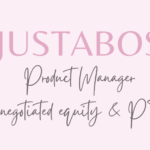It’s not a secret that the work you put in early in life, will pay off a lot when you’re older. Compared to most, I got started with investing pretty early on, but I am always kicking myself for not getting even earlier. When you’re in your 20s, preparing for retirement is probably the last thing on your mind (like what?! I just started my career how am I supposed to think 30-40 years from now)
When it comes to accumulating wealth, the best thing you can have is time. The sooner you start saving and investing, the more time you have for your investments to continue to grow thanks to compound interest
In this article, we will review the best five ways to build a foundation to start accumulating wealth early on so you can reach financial independence.
I still remember that video word for word (LOL) but be patient. Letting your wealth grow through compound interest will help you build the most wealth over time.
1. Create an Emergency Fund
An Emergency fund is essentially your *cushion* to cover any unexpected expenses
Aren’t we all Michelle Tanner at some point? But in all seriousness, it is recommended to build up an emergency fund so as things come up like unexpected medical bills, car maintenance, or other unexpected expenses, so it doesn’t feel like a so called “emergency.”
It is recommended to start out with a 1 month emergency fund, build up to a 3 month emergency fund, and eventually build up to a 6-12 emergency fund. Especially in this economy, I strongly recommend a 12 month emergency fund so you are completely covered in the case of losing your job and health insurance
When setting up your emergency fund make sure to include fixed expenses like rent and bills, but also include variable expenses like groceries, food, and clothing! I like to round up to be more conservative
Use your emergency fund to avoid taking out high interest rate consumer debt and be prepared for anything unexpected that comes your way
2. Get your employer’s 401(k) match
Depending on your employer, as a part of their benefits plan, they will usually offer a match based on what you contribute to your 401(k). The industry standard is around 3-6%, if you contribution at least 6%. By not contributing enough to your 401(k) to get your employer’s match you are leaving FREE money on the table.
The maximum contribution amount annual is $19,500 so more than likely you will have to contribute more than that 6% to max it out.
With your 401(k), you won’t have to pay taxes until you withdraw from your account after 65.
3. Open a Roth IRA
A Roth IRA is a little different from your 401(k) in that you pay taxes upfront rather than at retirement. This a great tool for those younger and early in their career because they can take advantage of the low tax rate they will have earlier on and have their investments grow tax free!
Unlike your 401(k) which is sponsored by your employer, a Roth IRA is an individual retirement account so there is no match and it is strictly based on your own contributions.
In order to qualify you must fall under the following:
You must have earned income, either through employer or self-employment
If you are single…Income must be less than $137K (2019)
If you are married, filed jointly…Income must be less than $203K (2019)
Your Roth IRA allows you to contribute up to $6,000 every year through the tax deadline.
4. Create a Budget that you’ll actually stick to
“Your budget is simply just a plan for your money.”
Contrary to what most financial experts might tell you, you don’t need complex budget. All you need is a plan. Simply put, your budget is to keep your spending in check and ensure you stay in line to reach your goals.
When you are creating a budget, first you will need to review your current and future expenses and income. Then, figure out goals for yourself ie how much you want for retirement and how much should be contributed every month and so on!
5. Pay down your debts
There are 45 million borrowers who collectively owe nearly $1.6 trillion in student loan debt in the U.S.
If you’ve graduated college, you are more than likely to have at least a little bit of debt to your name. The key here is to create a plan to pay them off as early as you can to avoid paying more interest as it continues to accumulate over time.
Your net worth is your assets (think cash, investments, etc) minus your liabilities (think debt, credit cards, student loans etc), so as you continue to pay down your debts it effectively increases your worth.
Once your debts are paid off, it will give you the freedom to invest more aggressively and make more of your own financial decisions.
If you start with these, you are setting yourself up for success and will be on your way to reaching financial independence!






